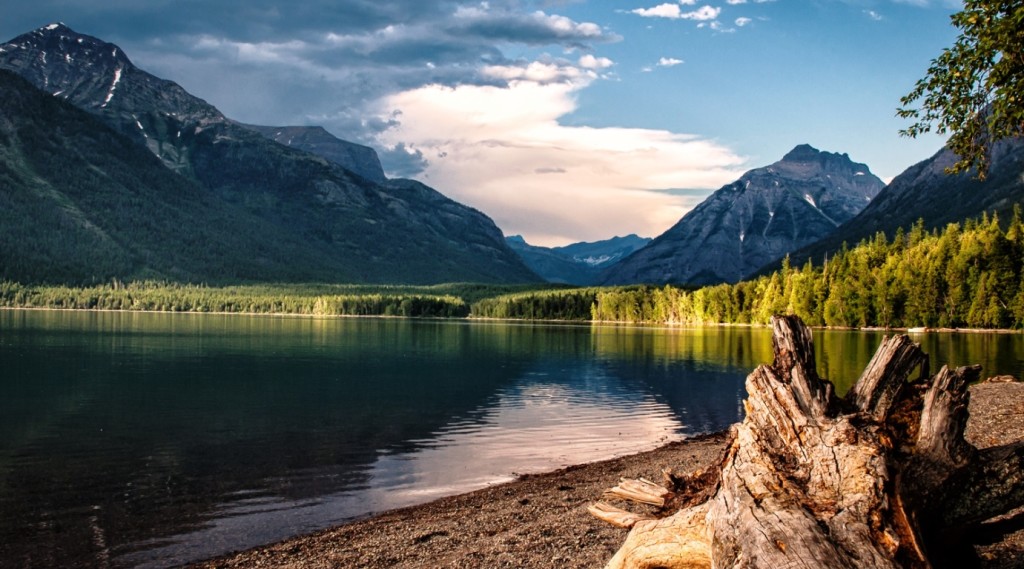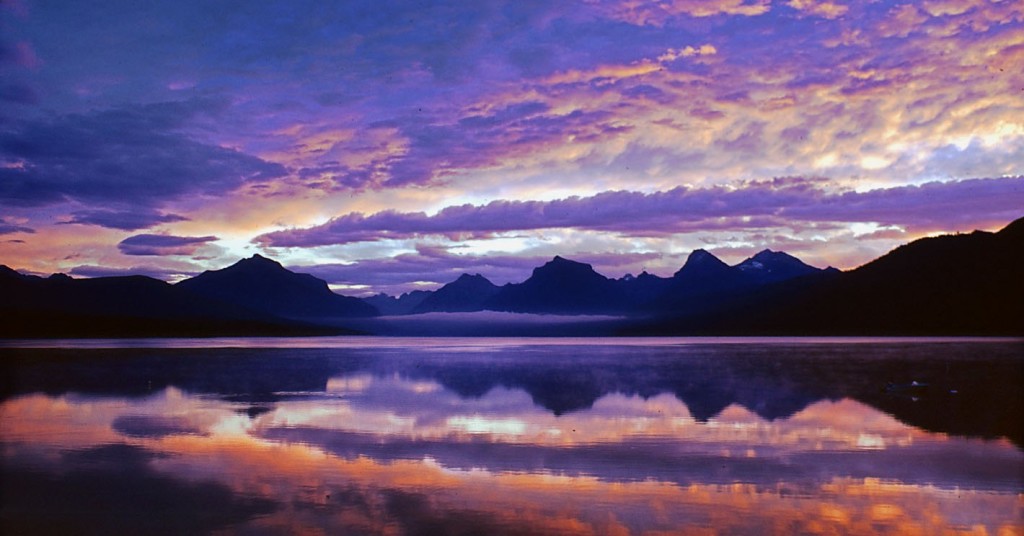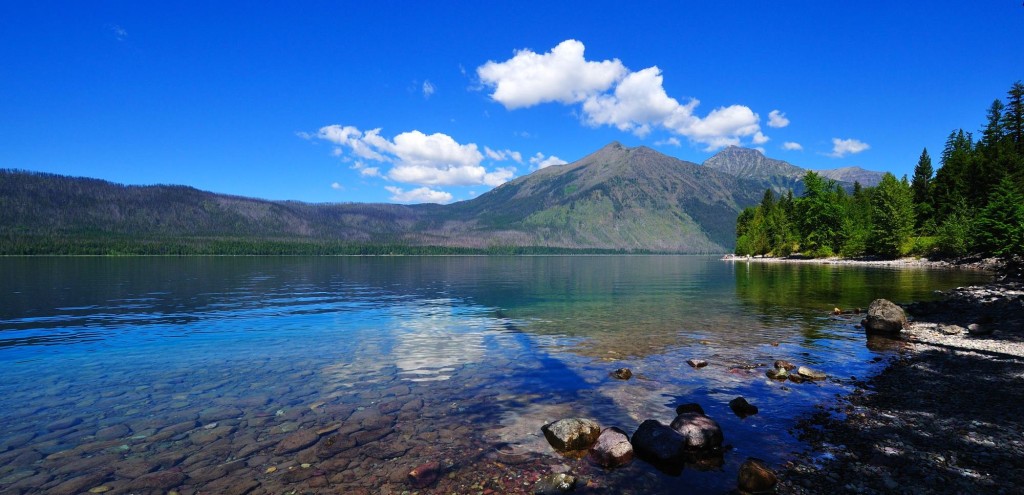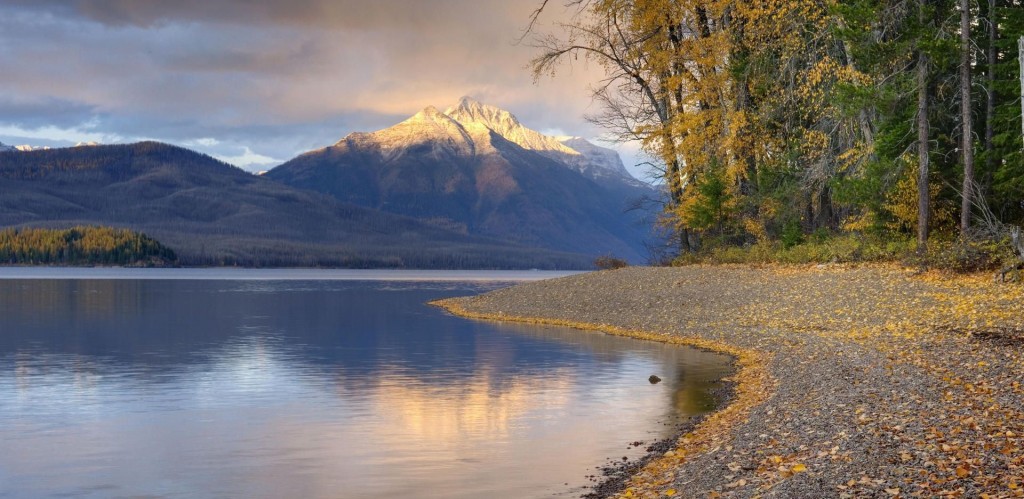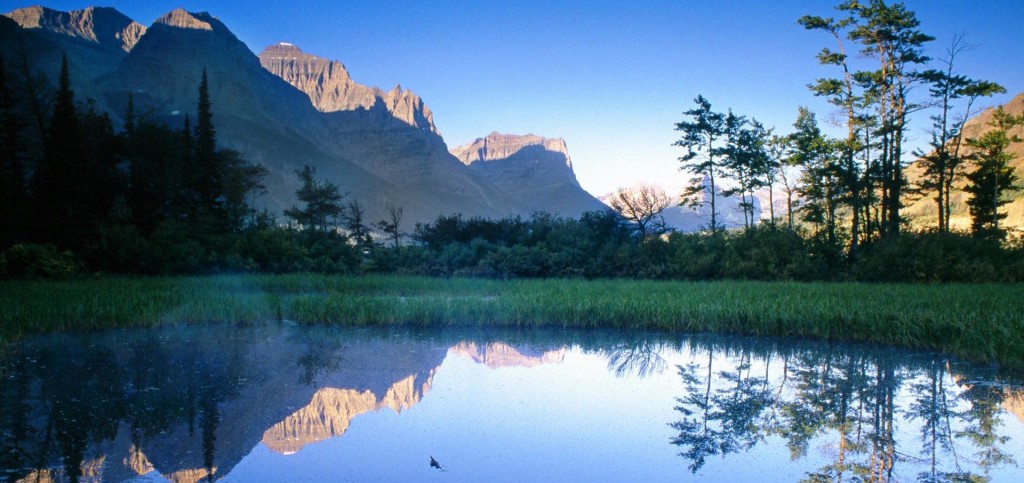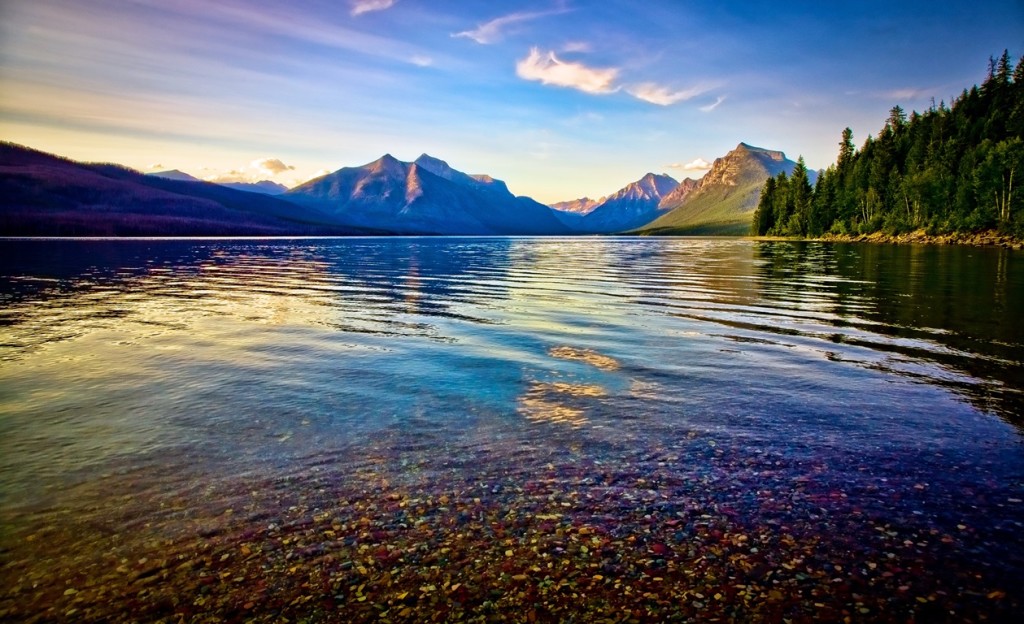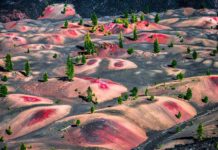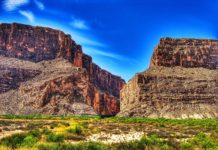The beautiful Lake McDonald is the largest lake in Glacier National Park. It is located at 48°35′N 113°55′W in Flathead County in the U.S. state of Montana. Lake McDonald is about 16 kilometers long, 1.6 kilometers wide, and 472 feet deep. The lake is filling a valley formed by erosion and glacial activity. Lake McDonald lies at an elevation of 3,153 feet and is on the west side of the Continental Divide.
The Going-to-the-Sun Road parallels the lake along its southern shoreline. The long fjord-like lake is surrounded by mountains on the north, south, and east of the Continental Divide. It provides a spectacular backdrop for the lake and also acts as a rain-block. The surface area of the lake is 6,823 acres, or approximately 27.6 km2. The lake is home to several native species of trout and other gamefish. Catchable species include, but are not limited to, west-slope cutthroat trout, rainbow trout, bull trout, lake trout, Lake Superior whitefish, mountain whitefish, Kokanee salmon, landlocked sockeye, and suckers.
Read More: Saint Mary Lake Montana – A Hidden Jewel in the Rocky Mountains
Though the lake is nutrient-poor, it is not considered a prime fishing destination. Grizzly bears, black bears, moose, and mule deer are found in many places near the lake but are most common on the north shore. The lake is surrounded by a dense coniferous forest dominated by various species of spruce, fir, and larch. At the westernmost section of the lake in Apgar, there is a National Park Service visitor center, very limited lodging and dining facilities, and outboard powerboats available for rental.
Lake McDonald Lodging is the largest lodging facility on the lake. This is approximately 8 kilometers east along the Going-to-the-Sun Road. Lake McDonald Creek flows into and drains from the lake and empties into the Middle Fork Flathead River shortly after. The wildlife viewing here can be remarkable, with species including bighorn sheep, mountain goats, elk, black bear, and whitetail and mule deer.
Read More: Hanging Glacier – Biggest Attraction in Chile
